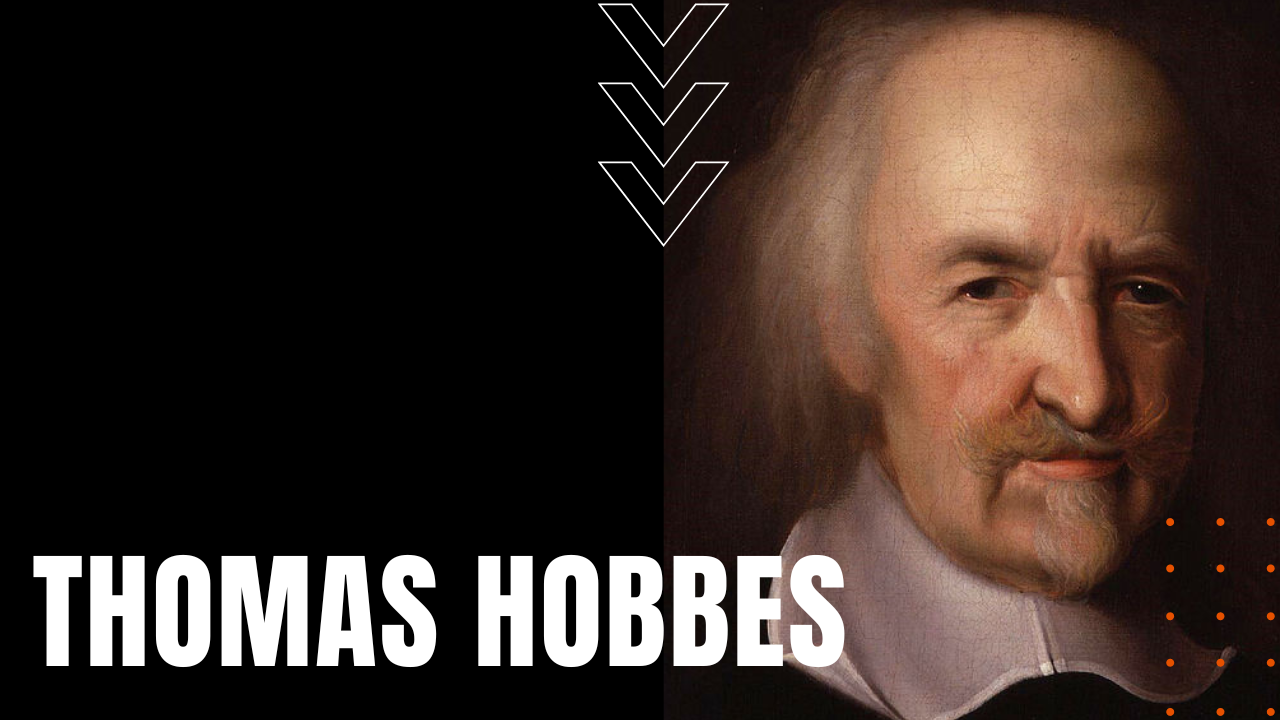Thomas Hobbes

Born in 1588 Malmesbury England, Thomas Hobbes attended Magdalen Hall and later Oxford University, after his father—a disgraced Vicar—abandoned the family when Hobbes was still a young boy. Becoming a tutor first for the eldest son of Lord Cavendish of Hardwick and later several other Cavendish family members, Hobbes traveled to continental Europe, where he met such notables as Francis Bacon and Ben Jonson, later publishing his first book on philosophy entitled Short Tract on First Principles.
Close to Power
His association with the Cavendish family also placed him in circles close to the king, members of Parliament and wealthy landowners, helping to shape his later writing on politics and the governance of man. A staunch royalist, in 1640, Hobbes wrote an essay defending King Charles the 1st—later expanded into his first book of political philosophy entitled The Elements of Law, Natural and Politic, and despite Hobbes’ professed belief that only strong kingly governance could hold a society together,
English Civil Wars Begin
King Charles the 1st was executed during the English Civil Wars of 1642 to 1651, forcing Hobbes to flee to France for his own personal protection. Developing a strong interest in the sciences and mathematics—most notably Euclidian geometry and optics—Hobbes was embraced by fellow polymath Marin Mersenne and his Parisian circle of academics, at the same time publishing Elements of Philosophy trilogy, Concerning the Citizen, Concerning Body and Concerning Man, in which he attempted to arrange the sciences, psychology and politics into a hierarchy from the basic to the most specific.
Contentious Relationship with Descartes
Sparing frequently with the likes of Descartes—a relationship bristling with a mix of respect and disregard—after his return from France following the end of the English Civil Wars, Hobbes published his magnum opus, Leviathan, which has since become an essential Western primer on statecraft and governance—a book that heavily influenced Enlightenment thinkers such as John Locke, Jean-Jacques Rousseau and Immanuel Kant.
A Royalist to the End
In Leviathan, Hobbes maintains that without strong leadership in the form of parliament and a king, humanity’s ultimate self-serving nature would lead to a state of perpetual war, fear, amorality and chaos. Turning his attention to his boyhood passion for the classics, in his later years, Hobbes translated Homer’s The Odyssey and The Iliad into English, before passing away on December 4th, 1679, making Thomas Hobbes, a foundational thinker at the dawn of Enlightenment.
